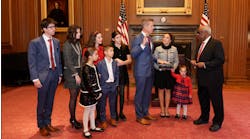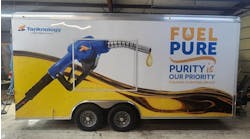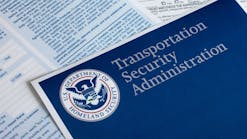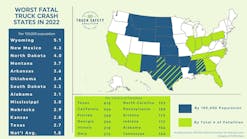The Federal Motor Carrier Safety Administration (FMCSA) officially proposed a set of comprehensive national prerequisite training standards for entry-level commercial truck and bus operators seeking to obtain a commercial driver’s license (CDL). The proposal has been in development for years.
The Notice of Proposed Rulemaking (NPRM) reflects consensus recommendations of a negotiated rulemaking committee comprised of FMCSA representatives and 25 stakeholders and responds to a Congressional mandate imposed under the Moving Ahead for Progress in the 21st Century Act, according to FMCSA officials. Public comment is sought as the next phase of the rulemaking.
“Well-trained drivers are safer drivers, which leads to greater safety for our families and friends on our highways and roads,” said US Transportation Secretary Anthony Foxx. “With the help of our partners, today’s proposal serves as a major step towards ensuring that commercial vehicle drivers receive the necessary training required to safely operate a large truck or motorcoach.”
Under the proposal, applicants seeking a “Class A” CDL--necessary for operating a combination tractor-trailer type vehicle weighing 26,001 pounds or more--would be required to obtain a minimum of 30 hours of behind-the-wheel training from an instructional program that meets FMCSA standards, including a minimum of 10 hours of operating the vehicle on a practice driving range.
Applicants seeking a “Class B” CDL--necessary for operating a heavy straight truck (such as a dump truck or box truck) or a school bus, city transit bus, or motorcoach--would be required to obtain a minimum of 15 hours of behind-the-wheel training, including a minimum of seven hours of practice range training.
There is no proposed minimum number of hours that driver trainees must spend on the classroom portions of any of the individual curricula.
Mandatory, comprehensive training in all 50 states, the District of Columbia, and all US territories would apply to the following individuals under the proposal:
• First-time CDL applicants;
• Current CDL holders seeking a license upgrade (eg, a Class B CDL holder seeking a Class A CDL) or an additional endorsement (necessary, eg, to transport hazardous materials, operate a tank truck, school bus, or motorcoach, or pull double and/or triple trailers); and
• A previously disqualified CDL holder seeking to reacquire a license.
These individuals would be subject to the proposed entry-level driver training requirements and must complete a course of instruction provided by an entity that:
• Meets the minimum qualifications for training providers;
• Covers the curriculum;
• Is listed on FMCSA’s proposed Training Provider Registry; and
• Submits electronically to FMCSA the training certificate for each individual who completes the training.
Under the proposal, military drivers, farmers, and firefighters would continue to remain generally exempt from the federal CDL requirements.
FMCSA’s Entry-Level Driver Training Advisory Committee (ELDTAC) met for six two-day negotiating sessions starting in February 2015 until reaching consensus in May 2015. The ELDTAC included FMCSA representatives and a cross-section of 25 representatives from motor carrier transportation, highway safety, driver training, state licensing, law enforcement, labor union, and insurance organizations.
Click here https://s3.amazonaws.com/public-inspection.federalregister.gov/2016-03869.pdf to view the NPRM. Members of the public will have the opportunity to review the NPRM and submit comments to the docket for 30 days following its publication in the Federal Register.
Click here https://www.fmcsa.dot.gov/registration/commercial-drivers-license/eldt for more information on entry-level driver training.
Click here https://www.fmcsa.dot.gov/eldtac to learn more about the ELDTAC, including a list of ELDTAC members, meeting minutes, and other related information.










